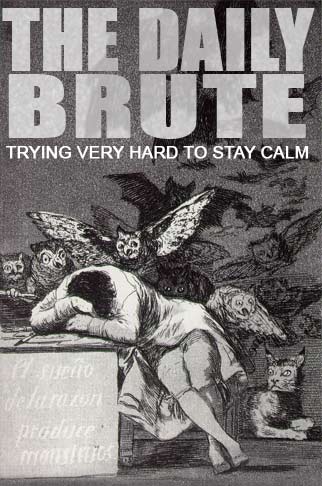The Bottler has told us that when he was offered money by David Abrahams's go-between, Janet Kidd, it was turned down because: 'It was not the practice of my campaign team to accept money from people not known to them'.
At the same time, Harriet Harman has said that her campaign team accepted money from Janet Kidd because Kidd was a 'known' Labour party donor.
As she was. Between May 2003 and December 2005 the 'unknown' Janet Kidd donated £67,000 to the Labour party (all of course actually paid by David Abrahams). By any measure, that made her pretty well 'known'.
However, leave aside that, as a result, Janet Kidd was 'known' only to the Labour party but not to the Bottler and consider this.
If a politician is offered a donation by someone 'not known to them' then all logic suggests that it is in the interests of said politician to find out just who this person is, in other words to make them 'known to them'. If they have already given your party £67,000, this would hardly seem to require the services of Sherlock Holmes.
Consider, too, that Hillary Benn, also offered money by Janet Kidd, was warned off it by Margaret Jay, by any measure a pretty big cheese in Labour circles, on the basis that she, Jay, knew the money was actually being paid by Abrahams and was, as such, suspect.
In other words, we are expected to believe that Jay knew who Abrahams was but the Bottler's team didn't.
The real answer seems much simpler.
That of course the Bottler knew about Abrahams and was more than happy for the party to accept his money provided it was the party rather than him personally who would be blamed if the subterfuge was subsequently discovered. Shades of Lord Levy? It seems reasonable, too, to assume that he had already prepared a get-out route, by which I mean that he had identified a sacrificial victim, in this case Peter Watt, who could be relied on to offer himself up if the deal was rumbled. I say this, too, on the basis that no one with claims to sentient thought believes that Watt could ever have not known that Abrahams's donations were illegal.
Which leaves only Harman. What really was her role? A different kind of patsy, I'd say. It seems credible to believe she and her team weren't in the loop, saw the money, make perfunctory checks, were reassured that Kidd was a previous 'known' Labour donor and simply thought, 'Goody. More money.'
I suspect it will prove an expensive, possibly terminal mistake for her.
But the question still needs to be followed up. Why was a 'known' Labour party donor not 'known' to the Bottler?
Tuesday, 27 November 2007
Subscribe to:
Post Comments (Atom)


1 comment:
"When is 'known' not 'known'?"
"It depends on what the meaning of 'is' is."
This side of the Atlantic, that side of the Atlantic, this side of the Channel, that side of the Channel, they're all bloody politicians so what can we expect?
The only relevant question is: do we have enough lamp-posts?
Post a Comment